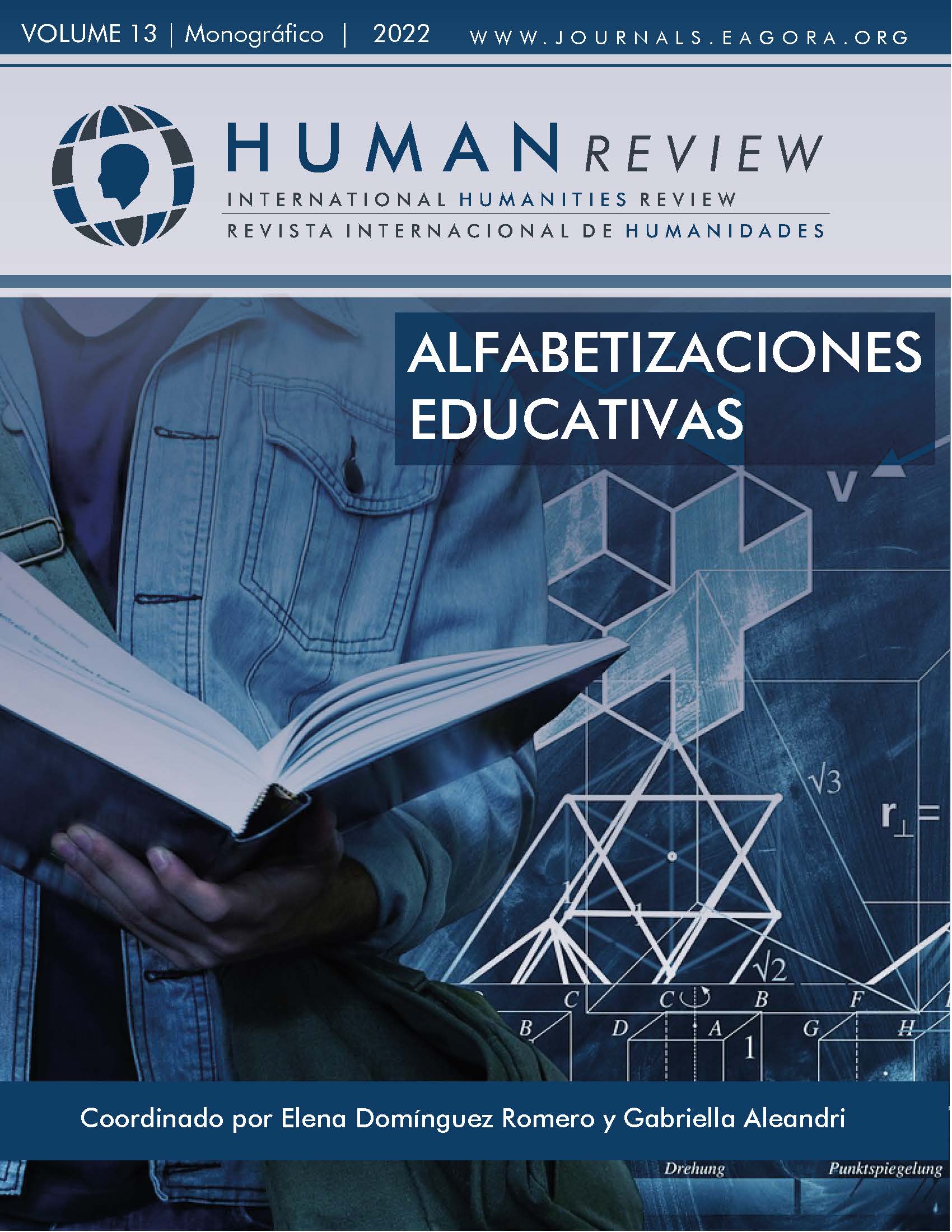Teaching Professionalization In Vulnerable Contexts
Strategy To Promote Educational Quality And Inclusion In Mexico
Keywords:
Teacher training, Vulnerable contexts, Educational equity, Educational policy, School diversity, Educational inclusionAbstract
The purpose of the research is to determine the impact of the training programs offered by the educational authorities in 2021, in the state of Tabasco, Mexico, on basic education teachers who work in vulnerable contexts. The importance of the study is understood since it is a strategy that the Mexican State applies to promote educational quality and inclusion. The approach is quantitative, the validation and reliability of the instrument was carried out through expert judgment and a Cronbach’s alpha of 0.92.
The results obtained provided relevant information related to academic and technological aspects.
References
Bawane, J., y Spector, J. M. (2009). Prioritization of online instructor roles: implications for competency based teacher education programs. Distance Education, 30 (3), 383-397. http://www.learntechlib.org/p/106156/
Belanger, F. y Jordan, D.H. (2000). Evaluation and Implementation of Distance Learning: technologies, tools and techniques. Idea Group Publishing.
Bowman, N. (2010). College Diversity Experiences an Cognitive Development: a Meta-analysis. Review of Educational Research, 80 (1), 4-33. http://doi.org/10.3102/0034654309352495
Constitución Política de los Estados Unidos Méxicanos [CPEUM] (2021). Cámara de Diputados del H. Congreso de la Unión. México (2021). https://www.diputados.gob.mx/LeyesBiblio/pdf/CPEUM.pdf
Contreras, J. (1997). La autonomía del profesorado. Morata.
Darling-Hammond, L. y Bensford J. (Eds.) (2005). Preparing teachers for a changing world: What teachers should learn and be able to do. Jossey-Bass/Wiley.
Day, C. (1998). La Formación Permanente del Profesorado en Europa: Temas y Condiciones para su Desarrollo en el siglo XXI. Revista de Educación (317), 31-44. https://n9.cl/ozcrj
Delgado B., V. (2013). La formación del profesorado universitario. Análisis de los programas formativos de la Universidad de Burgos (2000-2011). [Tesis Doctoral, Universidad de Burgos]. https://dialnet.unirioja.es/servlet/articulo?codigo=4491550
Denis, B., Watland, P., Pirotte, S., & Verday, N. (2004). Roles and Competences of the e-tutor. Paper presented at the Networked Learning Conference. Lancaster, England.
Duggleby, Julia. (2001). El tutor online. La enseñanza a través de Internet. Ediciones Deusto.
Eirín, N. R., García, R. H., y Montero, M. (2009). Desarrollo Profesional y Profesionalización Docente. Perspectivas y Problemas. Revista Profesorado
Escobar-Pérez, J. y Cuervo-Martínez, A. (2008). Validez de contenido y juicio de expertos: una aproximación a su utilización. En Avances en Medición, 6, pp. 27-36.
Frade, R. L (2009). Planeación por competencias. Ed. Inteligencia educativa.
Freire, P. (2010). Pedagogía de la autonomía y otros textos. Caminos.
Gairín S., J., Rodríguez G., D. y Armengol A., C. (2010). Who exactlyis the moderator? A consideration of online knowledge management net work moderation in educational organizations. Computers and Education, 55, 304-312. https://doi.org/10.1016/j.compedu.2010.01.016.
Hernández, R., Fernández, C. y Baptista, L. (2014). Metodología de la Investigación (6ta. Ed.). McGraw-Hill/ Interamericana de Editores S. A. de C. V.
Imbernón, F. (2011). La formación pedagógica del docente universitario. Educação 36 (3).pp. 387-395. ISSN: 0101-9031. https://www.redalyc.org/articulo.oa?id=117121313005
Kirkpatrick, D. L., & Kirkpatrick, J. D. (2009). Evaluating Training Programs: The Four Levels. (3rd edition).Berret-Koehler Publiserhs Inc.
Ley General de Educación, del 30 de Septiembre de 2019. Diario Oficial de la Federación [DOF], (2019).H. Congreso de la Unión, México, D.F. https://www.diputados.gob.mx/LeyesBiblio/pdf/LGE.pdf
Marcelo, C. (2011). E-learning en la formación para el empleo: ¿qué opinan los usuarios?. Revista de Educación, 355, 285-308
Martín, D. R. (2015). La formación docente universitaria en Cuba: sus fundamentos desde una perspectiva desarrolladora del aprendizaje y la enseñanza. Estudios Pedagógicos, 41(1), pp. 337-349. http://www.scielo.cl/pdf/estped/v41n1/art20.pdf
McPherson, M., Nunes, M. y Zafeiriou, G. (2003). New tutoring skills for online learning: are e-tutors adequately prepared for e-learning delivery? Paper presented at the Eden Annual Conference, Rhodes, Greece.
Programa Sectorial de Educación (2020-2024), del 06 de Julio de 2020. H. Congreso de la Unión, México, D.F. https://n9.cl/hxnwm
Reid, Doug. (2002). A Classification Schema of Online Tutor Competencies. Paper presented at the International Conference on Computers in Education (ICCE’02). Kuala Lumpur, Malaysia.
Reid, Doug. (2003). Was she smiling as she typed that?: An exploratory study into online tutor competencias and the factors that affect those competencies. Paper presented at the Annual Conference of the Australasian Society for Computers in Learning in Tertiary Education (ASCILITE), Adelaide, Australia.
Rosenberg, M. (2001).E-learning:Estrategias para transmitir conocimiento en la era digital. McGraw-Hill Intramericana.
Secretaría de Educación Pública [SEP], 2010. La telesecundaria en México: un breve recorrido histórico por sus datos y relatos. ISBN 978-607-469-637-0
_________ 2021. Principales Cifras del Sistema Educativo Nacional 2020-2021. Dirección General de Planeación, Programación y Estadística Educativa. Primera Edición Electrónica. Agosto de 2021.
Seoane Pardo, Antonio M., & García Peñalvo, Francisco J. (2007). Criterios de calidad en formació n continua basada en eLearning. Una propuesta metodoló gica de tutorí a on-line. Paper presented at the V Encuentro de Universidades eLearning, Salamanca, México.
Skjong, R. & Wentworth, B. (2000). Expert Judgement and risk perception. Skjong, Rolf & Wentworth, B.H.. (2001). Expert judgment and risk perception. Proceedings of the International Offshore and Polar Engineering Conference. 4. 537-544. http://research.dnv.com/skj/Papers/SkjWen.pdf
Swan, K. (2001). Virtual interactivity: design factors affecting student satisfaction and perceived learning in asynchronous online courses. Distance Education, 22 (2), 306-331. DOI: 10.1080/0158791010220208
Trujillo, H., J. A. (2020). La educación especial en México, un recorrido histórico desde el ámbito normativo. En J. A. Trujillo Holguín, A. C. Ríos Castillo y J. L. García Leos (coords.), Desarrollo profesional docente: reflexiones y experiencias de inclusión en el aula (pp. 15-29). Escuela Normal Superior Profr. José E. Medrano R.
Unidad del Sistema para la Carrera de las Maestras y los Maestros [USICAMM], 2021. Lineamientos generales para la operación del Servicio de Asesoría y Acompañamiento a las Escuelas en Educación Básica.
Villegas-Remser, E. (2003). Teacher professional development: an international review of the literature. UNESCO. International Institute for Educational Planning
Yot, C. y Marcelo, C. (2013).Tareas y competencias del tutor online, Profesorado. Revista de currículum y formación del profesorado, 17 (2). https://www.ugr.es/~recfpro/rev172COL5.pdf

